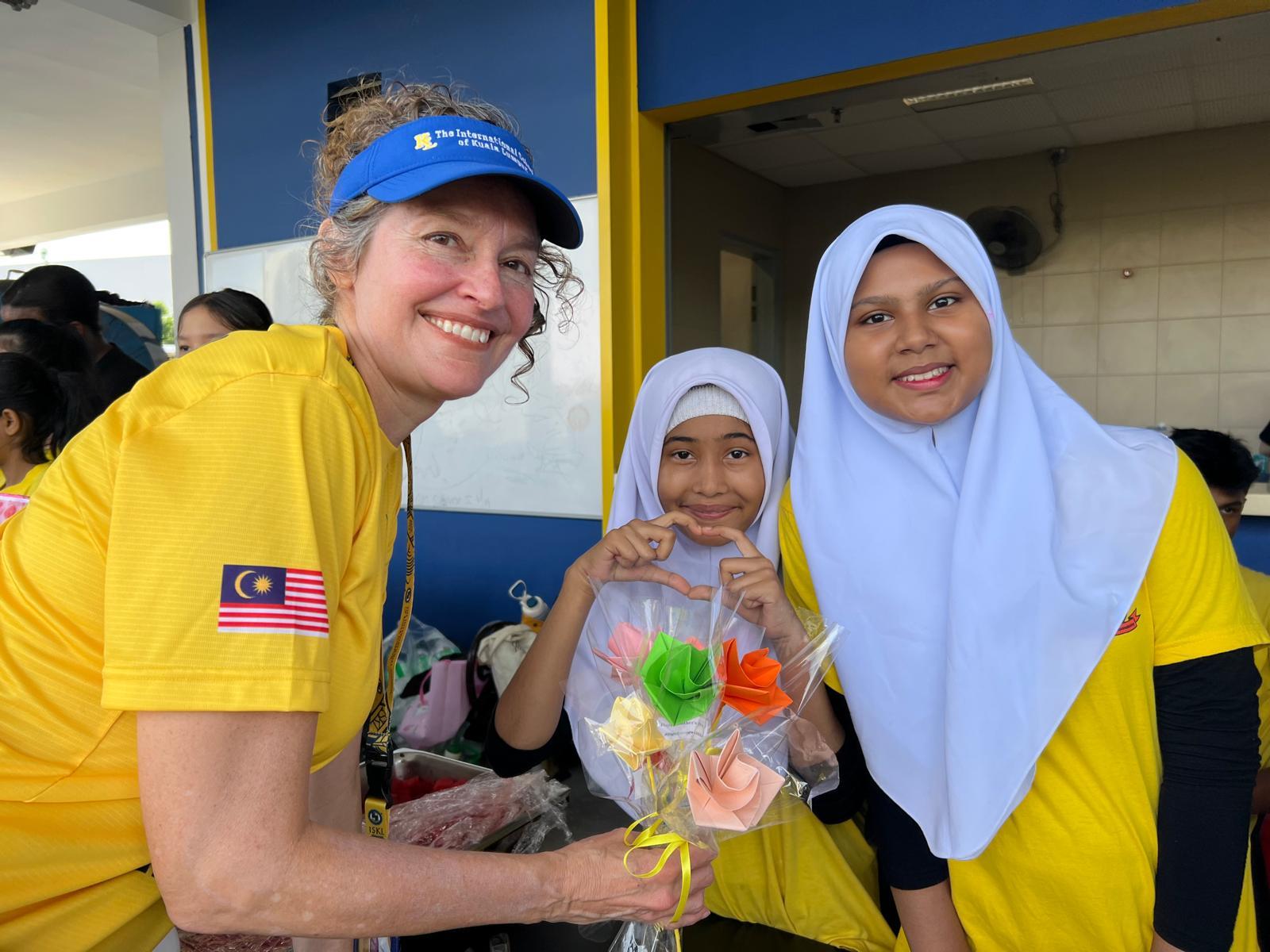
1. Describe your field and the scope of your Fulbright project. How would you explain it to someone who is unfamiliar?
My field of study is school psychology in the College of Education. Specifically, I study stress, resilience, healing, and equity in education for refugee and immigrant students, in addition to prevention.
I have had three U.S. State Department Fulbright Scholar Awards in Malaysia since 2010, in addition to a Fulbright alumni and an Institute for International Education award which also sent me to Malaysia.
For the most recent Fulbright in Malaysia in 2023-24, I conducted research on refugee secondary students’ motivation, socio-emotional well-being, and supports during the process of attaining a degree.
2. Who are the communities that will be impacted by your work?
Refugee communities in Malaysia are from Southeast Asia, largely Myanmar, in addition to Pakistan and Somalia. They are not given rights to education or employment in Malaysia because the government does not recognize refugees. My research on refugee secondary school experiences will impact those refugee youth and their teachers (who are also refugees) by translating my research results into a preventive intervention in partnership with refugee educators in refugee secondary schools.
3. Why is international research important to you?
International research is important to me because I believe in the Fulbright mission to advance mutual understanding across borders. We learn so much from other cultures which enrich not only us but also create stronger bonds and cultural humility across borders. Given the violent tumult in the world right now and the brutal political conditions in many countries, marginalized refugees are fleeing their homelands at unprecedented rates into “transit” countries, often waiting years for resettlement to safer countries.
Therefore, the need for U.S. academics and practitioners to understand and work with refugees abroad is paramount right now.
4. Share a memorable anecdote from your time abroad.
A memorable anecdote from my time abroad was when my children, husband, and I helped a large team organize a refugee soccer tournament for the third time since 2010. The refugee children wildly love the opportunity to have the freedom to play soccer with each other outside, since it is not safe for them to play outside given threats of deportation. My favorite moment was when my son had three young refugee boys trailing behind him wherever he went, helping him out with refilling the huge water dispensers for each soccer game. Then my son and the refugee boys went and played basketball together in addition to laughing and debating who was a better soccer player–Messi or Ronaldo.
5. What cross cultural knowledge do you gain from participating in a program like this?
I gained cultural knowledge about how many refugee communities come together to provide an education for their children, since the host country won’t let refugee children go to school. I also tasted Southeast and South Asian food from so many different cultures, sweating it out with the spicy deliciousness!
6. Will your research continue past Fulbright?
Yes, absolutely. I am meeting weekly with a research team to continue processing the data, and the team includes university colleagues from Malaysia. My doctoral student and I are excited to return to Malaysia next year to do another wave of data collection and that'll be with our Malaysia university colleagues too.
7. What was it like to join a new university community as an international Fulbright scholar?
Well, I have worked with that university for 14 years! So, it didn't feel so new although they have a lot of faculty turnover, but they are always so supportive, friendly, and eager to collaborate. They are great at involving undergraduates in my research too.
8. For other Terps that are interested in becoming Fulbright Scholars in the future, what perspective would you offer them?
Doing a Fulbright Scholar Award is life-changing. When you first consider applying for one, it can seem daunting to make it happen. For me, I had very young kids for my first Fulbright Scholar Award which made me hesitate about applying – How would I help my children thrive in Malaysia at such a young age? I also asked myself - How would my department and college support my going abroad for so long to do research? In the end, my children thrived and their life trajectories have changed as a result. And, my department and college at UMD offered great support for my going abroad for so long. You can make it happen!
